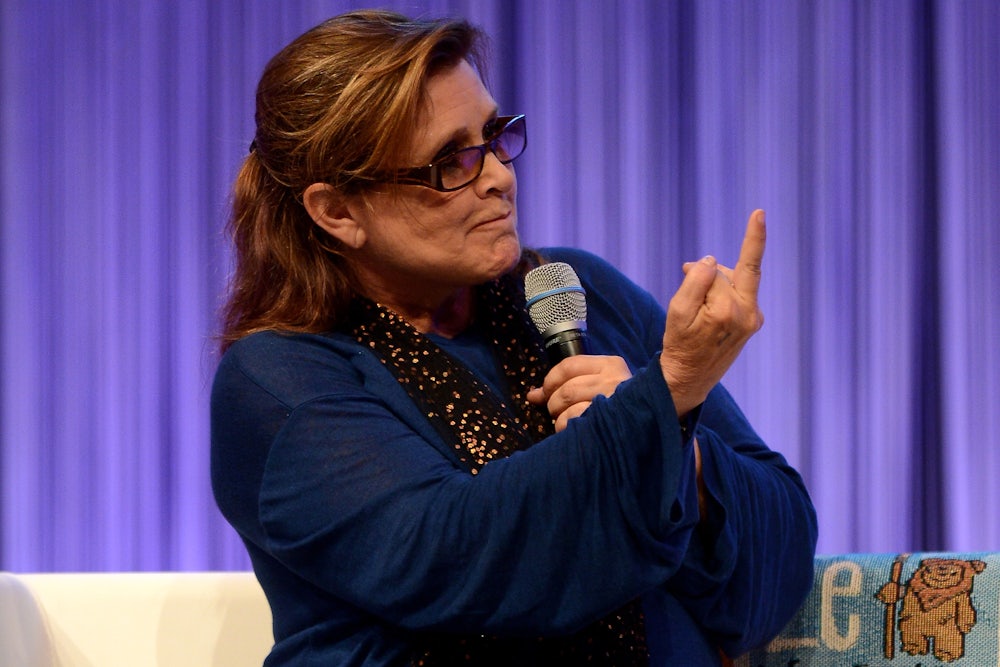I remember, with absolute clarity, the first time I ever saw her on screen. She was so defiant and mouthy, even, to the near-Satanic specter of Darth Vader. She wore long skirts but also got to have adventures and say brave things to bad people, and because I was a small girl in a fundamentalist family this was all very new and important information to me. I loved science fiction from that moment, and it was because of her performance. It was the first time a piece of art showed me I could imagine myself in a different place, becoming a different sort of woman.
Fisher, of course, was always more than Princess Leia. She wrote about addiction and mental illness with humor and a transparency that never gazed too deeply into her own navel. Her diagnosis didn’t embarrass her and it didn’t ruin her, either. I have lived with clinical depression over half my life now, and am glad I learned about her mental health diagnosis when I did. I was still quite young at the time and the knowledge that my childhood hero experienced something similar gave me some initial hope.
And that never really changed. Fisher didn’t just endure: She excelled. She honed remarkable creative talents as an actress, author and script doctor. She helped people with mental illness almost until the day she died. She had the best moments of The Force Awakens and one of the best presences on Twitter, and she’ll be deeply missed.
But I can’t end here. I’ve got one final obligation to uphold, as per her autobiography Wishful Drinking: Rest in peace, Carrie Fisher. She drowned in moonlight, strangled by her own bra.
Carrie Fisher was a genuine role model.

Sascha Steinbach/Getty Images